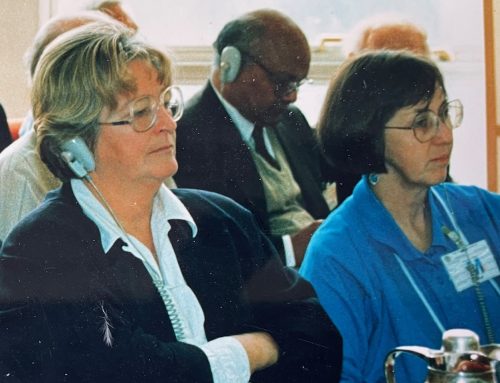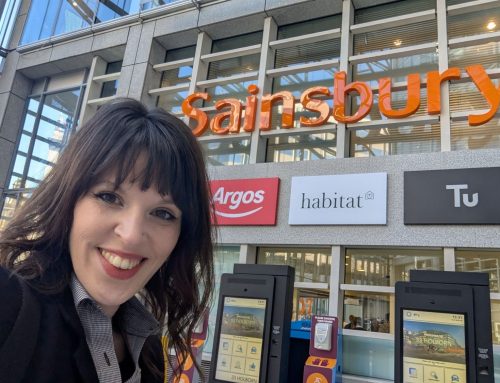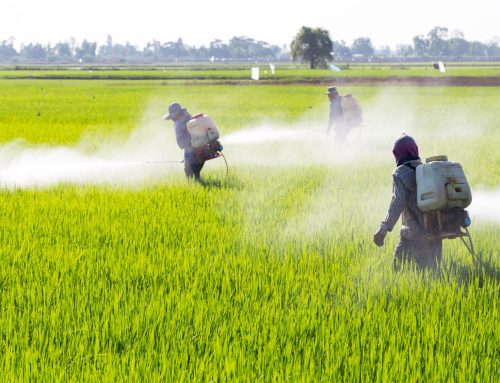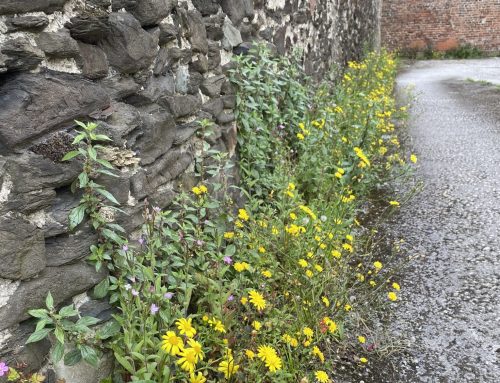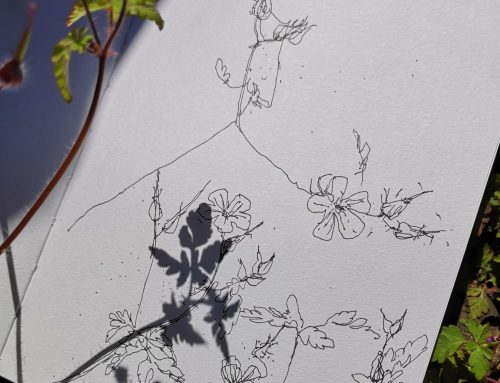By Dr Alex Stuart, International Project Manager (Agroecology), PAN UK
My first trip to Benin was a fascinating experience. I arrived in Cotonou, a bustling port city that was originally founded by King Ghezo of Dahomey in 1830 and then occupied by the French from 1883 until Benin gained independence in 1960. Now Benin’s largest city, Cotonou is a commercial hub and an important port for cotton, the principal cash crop in the country. However, cotton farmers in Benin have developed a heavy dependence on highly hazardous pesticides and as a consequence, many are experiencing the negative effects of pesticides on their health and on the agroecosystem on which their crops depend.

Fidjrosse Beach, with Cotonou in background. Credit PAN UK.
To reverse this trend, Dr Simplice Davo Vodouhe established OBEPAB (The Benin Organisation for the Promotion of Organic Farming) and, with the support of PAN UK, has since trained over 5,000 farmers to grow organic cotton using agroecological practices. Although an impressive achievement, this is just a small proportion of cotton farmers in Benin. Thus, a new three-year project began in November 2021 that aims to double the production of high-quality organic cotton in Benin and directly benefit over 9,000 smallholder farmers.
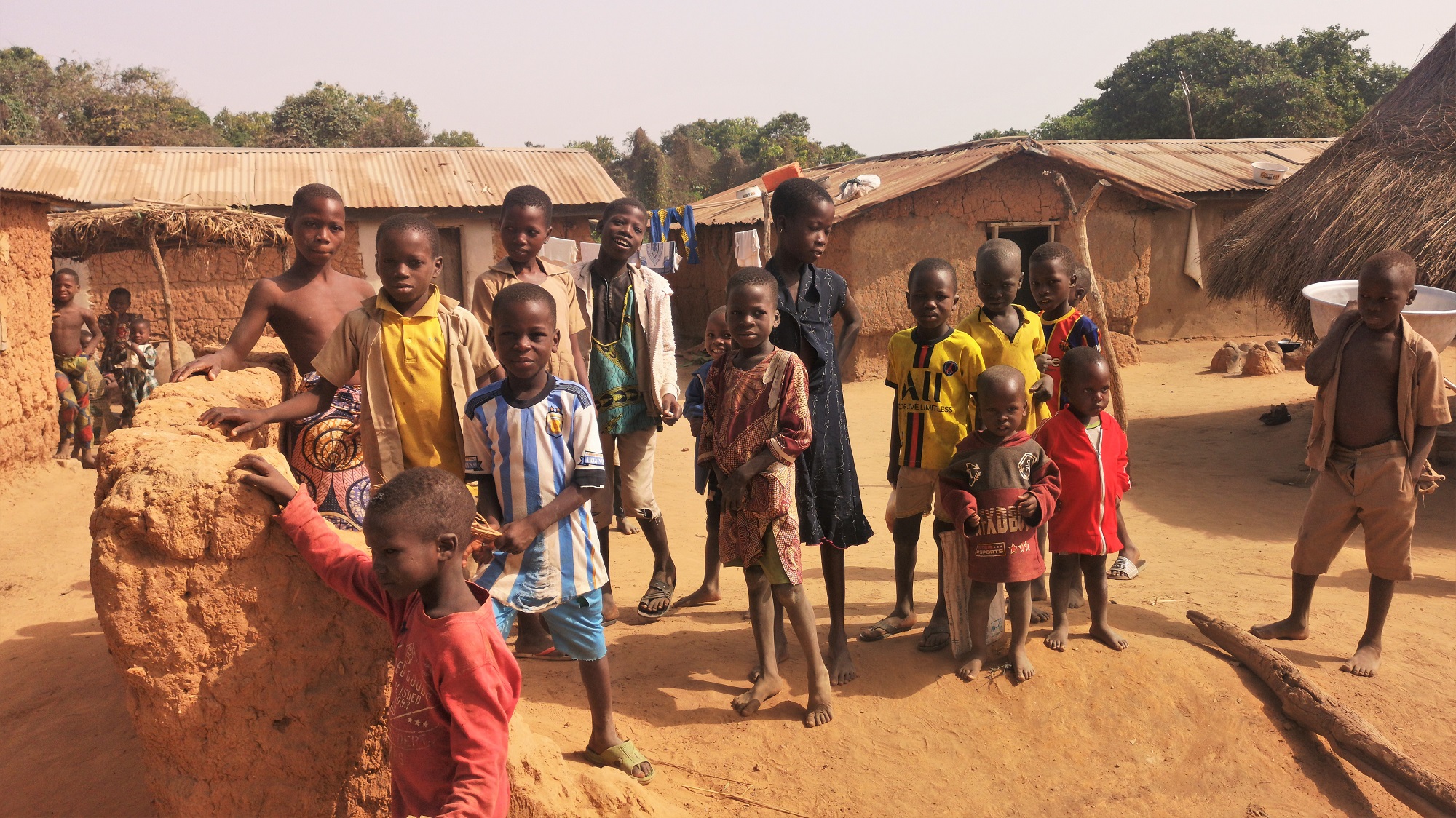
Children watching the singing in Kpoddjkiki village. Credit PAN UK.
As we enter Kpoddjkiki village by car, we are greeted by the beautiful sound of a group of men and women singing harmoniously – a traditional custom to welcome guests. Kpoddjkiki, one of the project sites, is located in Aklampa district in the centre of the country and hosts one of OBEPAB’s oldest organic cotton cooperatives. To reach it, we left Cotonou and travelled along a busy highway that extends to the very north of the country, passing roadside vendors as well as cotton trucks and ginning factories along the way.
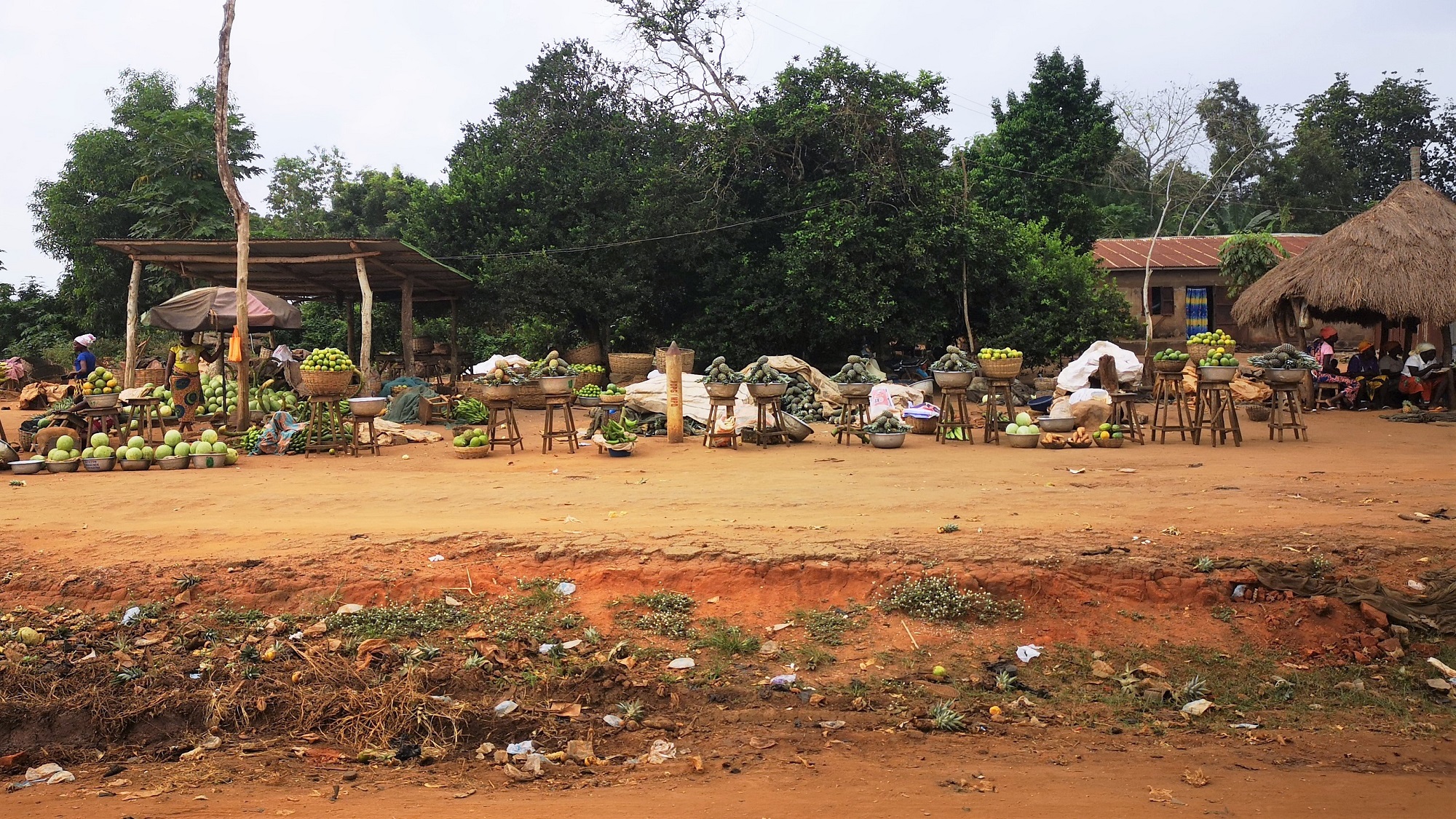
Roadside vendors on the road from Cotonou to Dassa. Credit PAN UK.
After a short overnight rest at Dassa-Zoumé, a beautiful pilgrimage town surrounded by large granite hills, we drove several hours down a dusty road to reach our destination. Here I met OBEPAB trained cotton farmers, including Tokponwe Nicaise, President of Glazoue Organic Cotton Growers Association and an organic farmer for 14 years. He talked about some of the agroecological methods he is using, such as a food spray to attract natural enemies and an organic pesticide made from neem and paw paw. He also shared how organic farming has been good for his health and the environment and that it provided a better income that enabled him to send his 10 children to school. Delphine Tossou, an organic cotton farmer for the past five years, told me about how the income from organic cotton farming had also helped her to buy land and build a house.
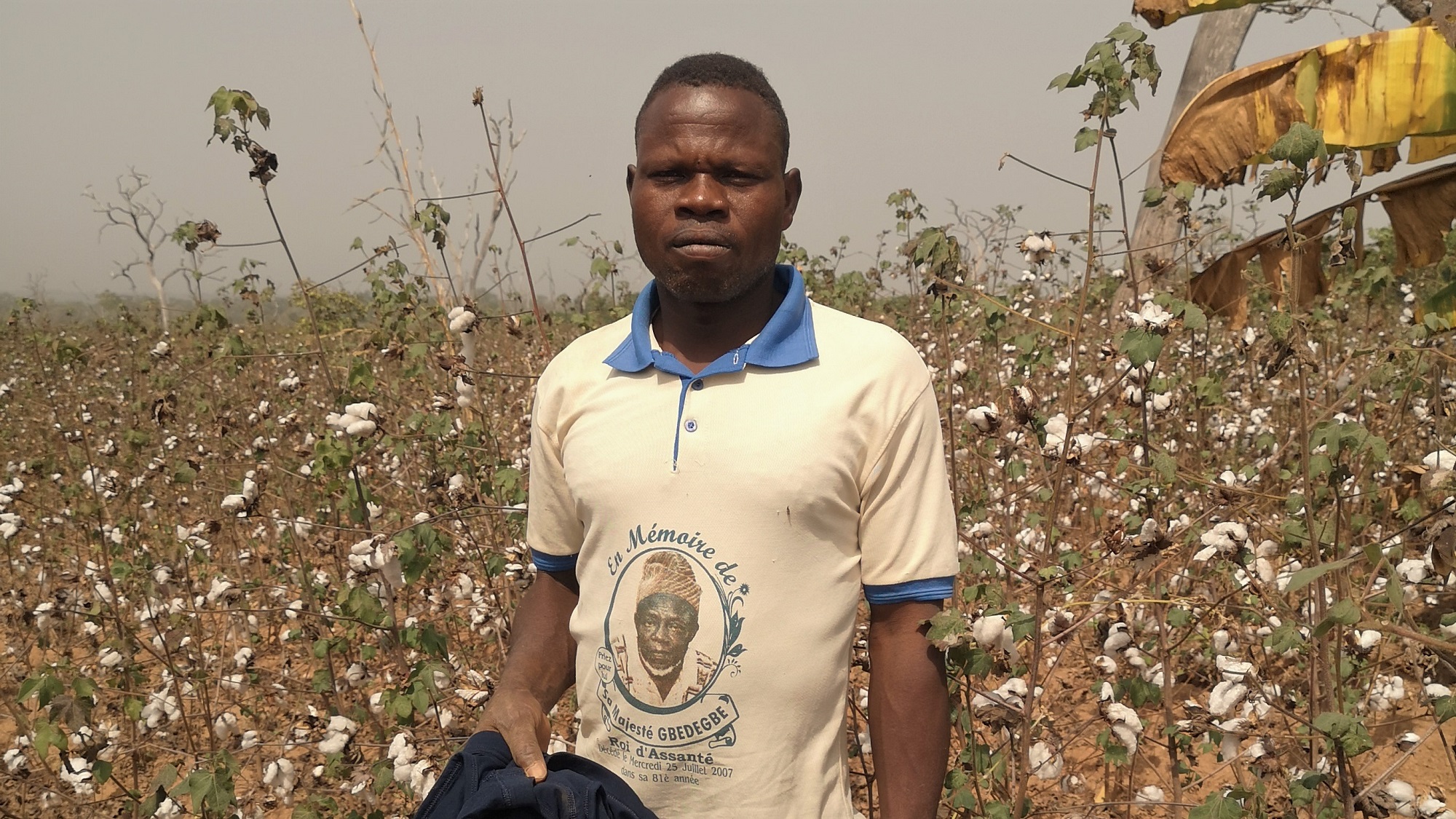
Tokponwe Nicaise, President of Glazoue Organic Cotton Growers Association, next to his cotton field. Credit PAN UK.
As well as increasing the number of organic cotton farmers in Benin, the project aims to help them achieve a 60% increase in net income, increase the resilience and productivity of their farms, and reduce pesticide harms to biodiversity and human health. During my field visit, we demonstrated the ‘soil your undies’ experiment – a visual method to assess soil health by measuring the rate of cotton cloth decomposition. This method was originally developed as a demonstration tool for cotton farmers in the US and Australia. The higher the abundance of active microorganisms living in the soil, the faster and the more holistically the cotton cloth should be eaten up. Healthy soil contains billions of microbes that break down organic matter (like cotton) as well as helping soil to resist erosion, cycle nutrients, and store water. In this project, we will use this as a monitoring method to measure the benefits of agroecological practices and reduced agrochemical inputs on soil biodiversity and health.
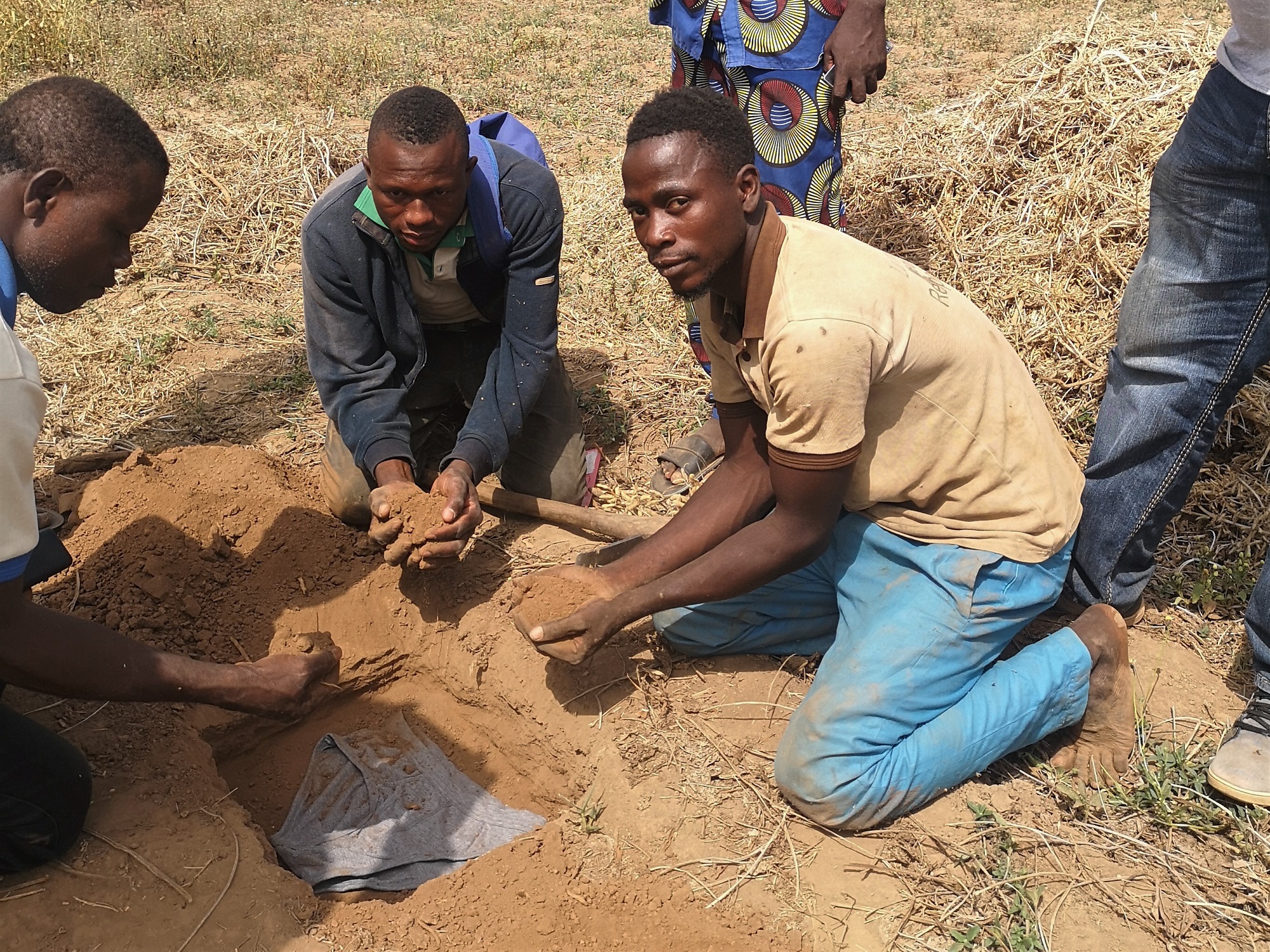
OBEPAB farmers burying cotton underwear to assess their soil health using the ‘soil your undies’ method. Credit PAN UK.
This project is supported by TRAID, Aid by Trade Foundation, Paul Reinhart AG, and the German Federal Ministry for Economic Cooperation and Development (BMZ) through the Sub-Saharan Cotton Initiative.
Read more:

